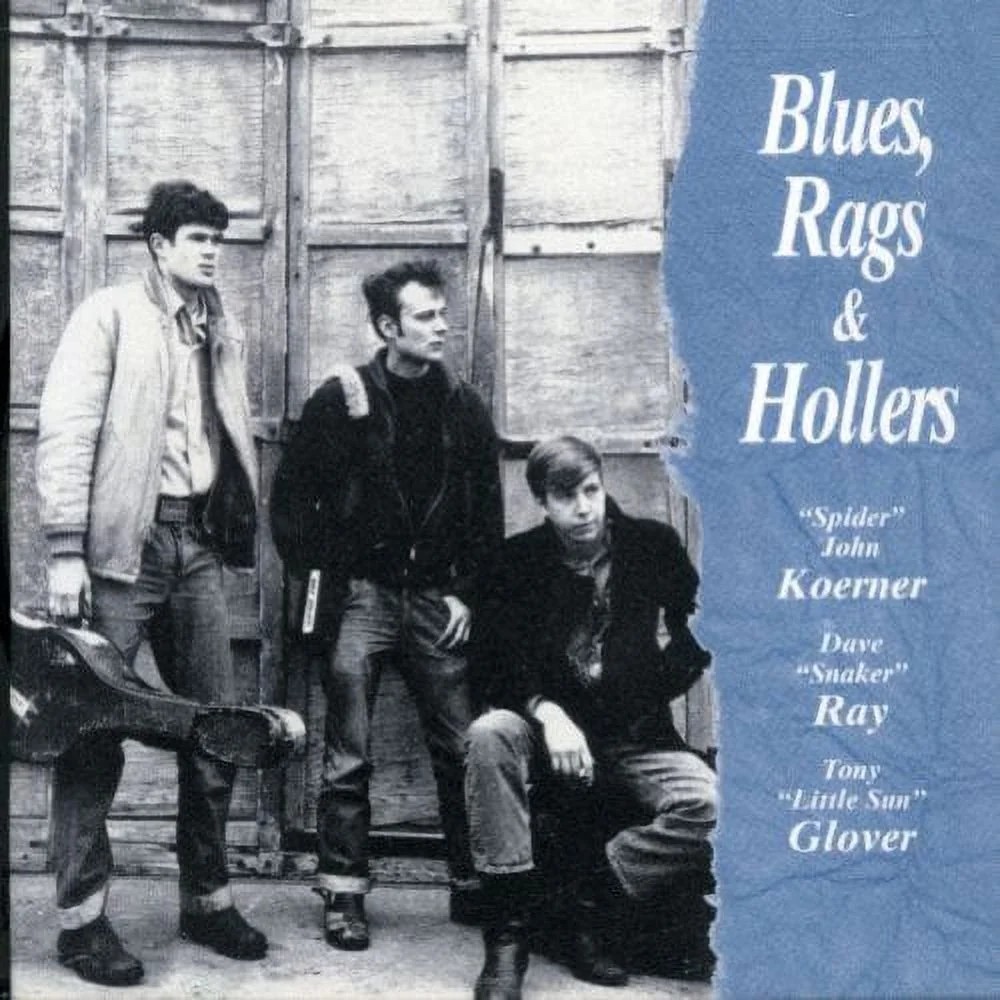
This long investigative report (published in the Sunday Times Magazine on May 16) by Ronen Bergman and Mark Mazzetti should become the most consequential piece of magazine journalism since Ta-Nehisi Coates published “The Case for Reparations” in The Atlantic ten years ago. May it be read in Israel where the public has become ever more impervious to crimes committed against Arabs. One of Israel’s extreme right-wing pols has condemned the Times piece as a “blood libel.” But Itamar Ben-Gvir — the ultra-settler who’s been Israel’s Minster of National Security since 2022 — seems to be in avoidant mode. This swatch from the article, detailing Ben-Givr’s support for mass murder and assassination, suggests why he might be betting evasion is his best option…
Tel Aviv Tell
I am not a professional poet
I’m not a reporter of today’s news
I see what I see,
and before I finish the telling
something else happens to me.
American Prism (Campus Diary)
The morning after the night raid, I woke up and checked my phone to see University security service’s automated message sent at 7:02 A.M.: “Quad cleanup.” I cringed. I texted a friend who had been involved from the start with the Encampment and checked the school’s paper The Maroon. Their live updated coverage had been one way of keeping up with goings on at the Quad. Like most students, I went in, and out, of the Encampment: meeting friends; nodding to acquaintances; hearing about campers’ fears and strategy; attending a Palestine-activist professor’s teach-in (“genocide isn’t complicated”); taking in kids’ play and an inter-faith call to prayer. Only snippets, perhaps, compared to those who stayed for the week and kept up chanting all night against the university police raid, but it was enough to give me a sense of the moment, and place.
Every Picture Tells a Story
“The artist is someone who makes something called art.”
Marcel Duchamp[1]
Not too long ago, I delivered a Zoom talk in which I detailed how I came to find myself frequently writing about transgressive cartoonists. My friend Malcolm, a visual artist of impeccable credentials but sometimes stodgy mien, commented that he found himself enlightened as to my “fascination with the obscene, the perverse, and the tasteless,” adjectives I would not have come to on my own.
At this time, I was also preparing for a podcast on which I would be discussing the Air Pirates, a band of underground cartoonists who, in 1970, took it upon themselves to further the revolution by creating comic books in which Disney characters conducted themselves in an unDisney-like manner, and which, in the ensuing litigation, Disney’s lawyers termed “perverted,” “obscene,” “cancerous,” and “grotesque.” I was struck not only by the similarities of language between Malcolm and Disney’s counsel but how it seemed to say as much about the beholder as the beheld.
In my Zoom talk, I had mentioned a book which I had known about for 50-years but had never had an inclination to acquire. I decided to pick one up.
.
There was a time when pornography pushed as many buttons as uni-sex bathrooms do today.[2]
On the Road with R.H. Blyth (II)
“Autumn arrives in early morning, but spring at the close of a winter day…” Elizabeth Bowen’s apercu is worthy of the seasonal sense that suffuses haiku, though it didn’t really work for me this year. Winter went away yet I kept waiting on the soft evening with Change in the air. At least I didn’t miss this…

David Swan: A Fantasy
R.H. Blyth loved American Renaissance writers. Thoreau, in particular, but he also appreciated Emerson and Hawthorne…
This is the sabishisa of senryu, the loneliness of every human being, and the feeling of awe which we have, as Hawthorne says in “David Swan,” at the sight of any human being asleep.
Blyth’s lines steered your editor to Hawthorne’s story which is posted below.
The Humor of Senryu
The bulk of what follows comes from Chapter 18 of R.H. Blyth’s “Japanese Life and Character in Senryu,” though these excerpts may also be found in the posthumous best-of Blyth, “The Genius of Haiku.” (A book with a title that has a double-meaning.) The opening is from Blyth’s introduction to “Japanese Life.”
The fundamental thing in the Japanese character is a peculiar combination of poetry and humour, using both words in a wide and profound yet specific sense. ‘Poetry’ means the ability to see, to know by intuition what is interesting, what is really valuable in things and persons. More exactly, it is the creating of interest, of value. ‘Humour’ means joyful, unsentimental pathos that arises from the paradox inherent in the nature of things. Poetry and humour are thus very close; we may say that they are two different aspects of the same thing; Poetry is satori; it is seeing all things as good. Humour is laughing at all things; in Buddhist parlance, seeing that ‘all things are empty in their self-nature’, and rejoicing in this truth.
A Poem on John Koerner’s Passing

xxx
Goodbye, Bill Walton
I wrote plenty about Bill Walton when he was alive (alive as you and me) but, damn, even more so. I don’t want to let him go. Ever!
In our country’s battle to preserve what soul it had, there was no greater weapon and stronger voice than that of antic Bill Walton. He rarely dribbled, and never shut up. He truly mattered.
(Forever) Young Walton
An indelible passage from David Halberstam’s The Breaks of the Game:
It was funny, [Lionel] Hollins said, we were so young and so cocky. Not just the championship year, but even more the year after. We didn’t think there was anyone who could beat us, and we didn’t think it would ever end. We walked out on the court before every game and we couldn’t wait for it to start.
The Commons, the Castle, the Witch, and the Lynx
One day at Crottorf we eat mouthwatering strawberries and yogurt for our lunchtime sweet.
Crottorf is the name of a castle, or schloss, in Westphalia, Germany. Twenty one of us are assembled from around the world to discuss the commons. We come from India and Australia, Thailand and South Africa, Brazil, Italy, Germany, Austria, France, England, Greece, California and the Great Lakes. It is midsummer. Surrounded by green meadows and cool forests, the castle seems sprung from a German fairytale, a piece of paradise. Indeed the Italian plasterer said as much in 1661 carving onto the hallway ceiling the words,
Un pezzo del paradiso Caduto
de cielo in terra
For three days we sit in a circle, twenty-one of us, discussing, if not heaven on earth, then the commons.
Mayday 2024
Sure, Trump could get elected or installed, and further shrink the NLRB, and impose a national right-to-work law. The Supreme Court majority could invent an interpretation of the Constitution that eliminates Social Security and Medicare, maybe even labor unions. Congress could find more ways to top load our already finance-heavy economic pyramid and push more people from the bottom out onto the streets.
But this May Day, I’m feeling this is not the time to feel discouraged. The labor movement is on the move.
It’s not just the UAW big win at The Big Three, or the follow-up victory at VW in Chattanooga, or now the contract victory at Daimler Truck. It’s the fact that all this is part of a plan to organize the auto plants across the south, along with the Amazon warehouses, schools, auto parts plants, and whatever other dominos begin to fall.
“Rap is Clear, So Write Clear” (Redux)
Iranian rapper Toomaj Salehi was sentenced to death on April 24 for lyrics that excoriated the Islamic Republic’s rulers and enablers. His uncle tweeted a message for the Iranian diaspora that should be heard by every believer in free speech…
The uncle of imprisoned Iranian rapper #ToomajSalehi has a message for Iran. pic.twitter.com/fi2XUrnAaO
— Chelsea Hart چلسی هارت (@chelseahartisme) April 26, 2024
xxx
The following First dispatch was originally posted in January, 2023…
Toomaj Salehi has been imprisoned and tortured by Iran’s regime scum who hate how his lucid rap exposes “the filth behind the clouds.” You can find out more about his music and the international campaign on his behalf here. Toomaj should be free as a bird, free as the Iranian woman he images, sans hijab, “…liberty’s mane blowing in the wind.”
Weberian at the Gates (with “Haaretz” Interlude & Post-Bust Postscript)
“My mind is closed,” said a protestor at one of last week’s anti-Israel rallies outside Columbia’s gates. Yet she flinched at her own words once they came out of her lips. (No doubt she’d meant to say, “My mind is made up.”) I repeated what she’d said back to her. While I wished she wouldn’t shake it off too fast, there was no gloat in my game. Maybe I had a clue I’d be playing gotcha with myself soon enough.
The Columbia building occupation on Monday night had me living in contradiction, twisted and turning. I started with a hard bias against the spectacle of Ivy guys with keffiyehs and hammers.[1] But I was slain by the occupiers’ choice to rename Hamilton Hall “Hind’s Hall” in tribute to Hind Rajab, a 6-year-old Palestinian girl killed by Israeli tanks in the war against Hamas. Blunt force against property (not people) may be justified if the aim is to fix attention on the pain of others.
I wasn’t much more subtle than the window-breakers on the evening of the day last week when Iran’s regime sentenced rapper Toomaj Salehi to death for exposing the “filth beyond the clouds” of Islamism. It was my invocation of Toomaj’s case that provoked the respondent at the rally who copped to her closed mind.
No Way Out (Yet)
Early on some people talked about changing algorithms and AI, but I don’t know anything about precisely how IDF calculations and behavior have changed since October 7th. My rough impression, drawn from people who know the country much better than I do, is that the IDF was usually more scrupulous before October 7th than it has often been since, that minimizing civilian deaths is now of less concern to the military, and the details of those deaths is of less concern to other Israelis. Friends who follow Israeli politics closely say that many things do concern and for that matter enrage the electorate: the failures of the IDF before the war, perhaps also during it, the possibility of their government’s strategic vacuity, its apparent cynicism, ultra-orthodox draft evasion and political extortion, also many other things, above all how this war can end with what people at first called “deterrence restored”, but Palestinian civilian casualties unintentionally inflicted while trying to destroy Hamas does not seem to make the list.
Frau Gertrude Kugelmann and the Five Gates of Marxism
Open one of the gates to Marxism — “The Working Day” chapter in the first volume of Capital — and you’ll find paragraphs with equations (“As the working-day is A—–B + B—–C or A—–C, it varies with the variable quantity B—–C…”) Stones in your pass-way? Yup. Yet once you’re through the gate, you’ll see a path that leads to a life in struggle. You can’t help but wonder if you’ll be worthy. Not that you’ll feel a need to be (what Karl said he wasn’t) a Marxist, but you’ll always wish to come down on the commoners’ side of class conflicts. And the older you get, the more you’ll suspect the only regard that matters comes from militants with the brains to turn tears into controlled rage as Marx does throughout his “Day”…
Quarantine Beltane
Hey, ho, make a merry din!
Weaving over, under, laughing at mess-ups,
we circled, flowers in our hair,
ribbons chosen to match our desires.
Refrigerator Day
in the full bright air conditioned hum
of my refrigerator day
are moments of triumphant scouring
call it progress
Style Wars (& Keeping It Real Universal)
“Men have united to form the Avengers of Hating Drake; Drake, in response, has doubled down. If you are too busy to keep up with all the rap men happenings, I have collected the details for you.”
Afropean Fraternity
https://youtu.be/pXx7bT282dk?si=xdzhI2A0ZEAPKtHF
Headie One and Koba LaD are brothers under the Channel. Their rap song, “Link In the Ends,” establishes a connection between French Banlieue and English council estate.
Pop History Play
Let’s start with a hypothetical. Suppose you’re 21 years old, you’re a raging Anglophile obsessed with British music, culture, and history, and you’re in London for the first time ever, with a flat to yourself for 1 week. For that week only, you have no responsibilities and are free to do whatsoever you fancy, in this city which Samuel Johnson once remarked that to be tired of is to be tired of life. How do you choose to spend your time?